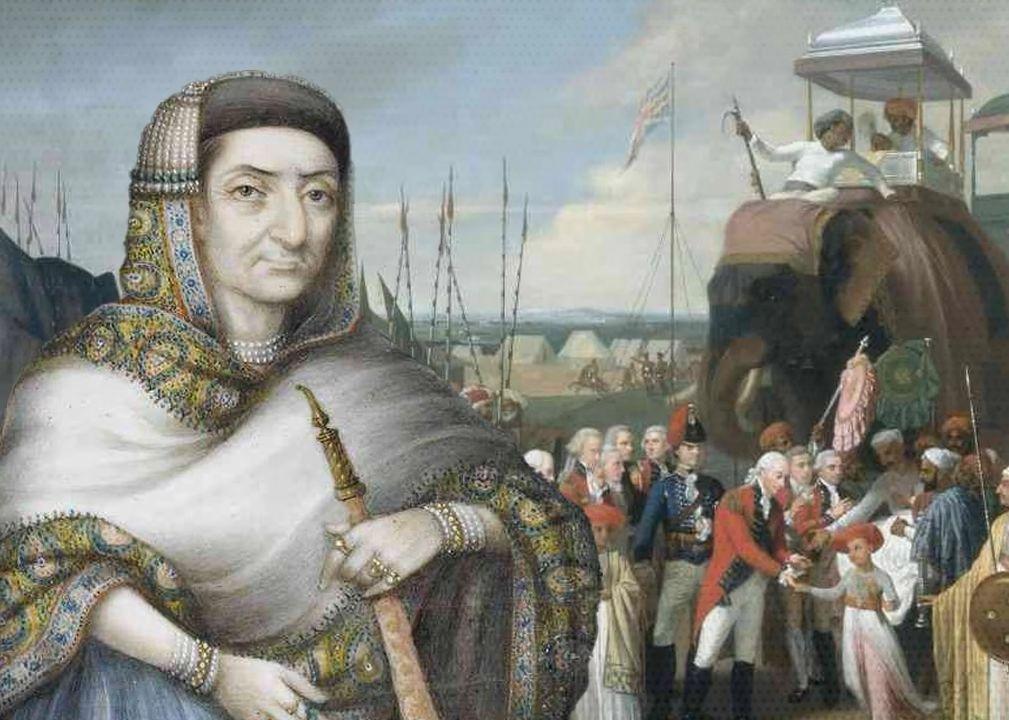
Women Entrepreneurs in Indian History: Begum Samru & Jibhabu
In a society where women were often relegated to traditional roles, Begum Samru and Jibhabu of Gujarat defied norms and carved out their own paths as entrepreneurs in the 18th and 19th centuries. These pioneering women left an indelible mark on Indian history, showcasing their financial acumen, strategic leadership, and diplomatic prowess.
Begum Samru: Ruling an Estate through Diplomacy
Begum Samru, also known as Jeanne-Marie Clémence Villeminot, was a French courtesan who rose to prominence in India during the 18th century. Born in 1755, she was sold into slavery at a young age and eventually became the mistress of the Nawab of Oudh, Saadat Ali Khan. When the Nawab died, Begum Samru inherited his 621-square km estate in Sardhana, which became her domain.
As the ruler of Sardhana, Begum Samru was known for her exceptional diplomatic skills. She maintained a delicate balance between the British East India Company and the native Indian rulers, ensuring her estate remained a vital hub of trade and commerce. Her diplomatic prowess earned her the respect and admiration of both the British and the Indian rulers, allowing her to navigate the complex web of alliances and rivalries with ease.
Begum Samru’s entrepreneurial spirit was evident in her efforts to develop Sardhana’s economy. She encouraged trade and commerce, establishing a thriving market that attracted merchants from across the region. Her estate became a symbol of stability and prosperity, attracting artisans, merchants, and traders from all over India.
Jibhabu of Gujarat: Restoring Family’s Land Revenue Business
Jibhabu, a Gujarati woman from the 19th century, was a stalwart entrepreneur who restored her family’s land revenue business by negotiating with the East India Company. Born into the prominent Bhansali family, Jibhabu inherited a significant amount of land and revenue rights from her father. However, the decline of the Mughal Empire and the rise of the British East India Company threatened the family’s business.
Jibhabu recognized the need to adapt to the changing times and negotiated with the East India Company to secure a contract that would ensure the continued revenue generation from their land. Her shrewd business acumen and diplomatic skills allowed her to navigate the complex web of British and Indian politics, securing a lucrative deal that restored her family’s business to its former glory.
Jibhabu’s entrepreneurial spirit was evident in her efforts to modernize the family’s business. She introduced new agricultural practices, invested in infrastructure development, and expanded the family’s trade networks. Her business acumen and leadership skills earned her the respect of her peers and the admiration of the British rulers.
Legacy of Begum Samru and Jibhabu
The legacies of Begum Samru and Jibhabu are a testament to the power of women entrepreneurs in Indian history. They defied societal norms, demonstrating that women could excel in traditionally male-dominated fields such as business and diplomacy.
Begum Samru’s diplomatic skills and entrepreneurial spirit left a lasting impact on the economy of Sardhana, while Jibhabu’s business acumen and leadership skills restored her family’s land revenue business. Their stories serve as a reminder that women have played a vital role in shaping India’s economic and political landscape.
In an era where women were often relegated to traditional roles, Begum Samru and Jibhabu paved the way for future generations of women entrepreneurs. Their stories inspire and motivate women to pursue their goals, challenge societal norms, and leave their mark on history.
Source:
https://ascendants.in/business-stories/pioneering-women-entrepreneurs-history/



